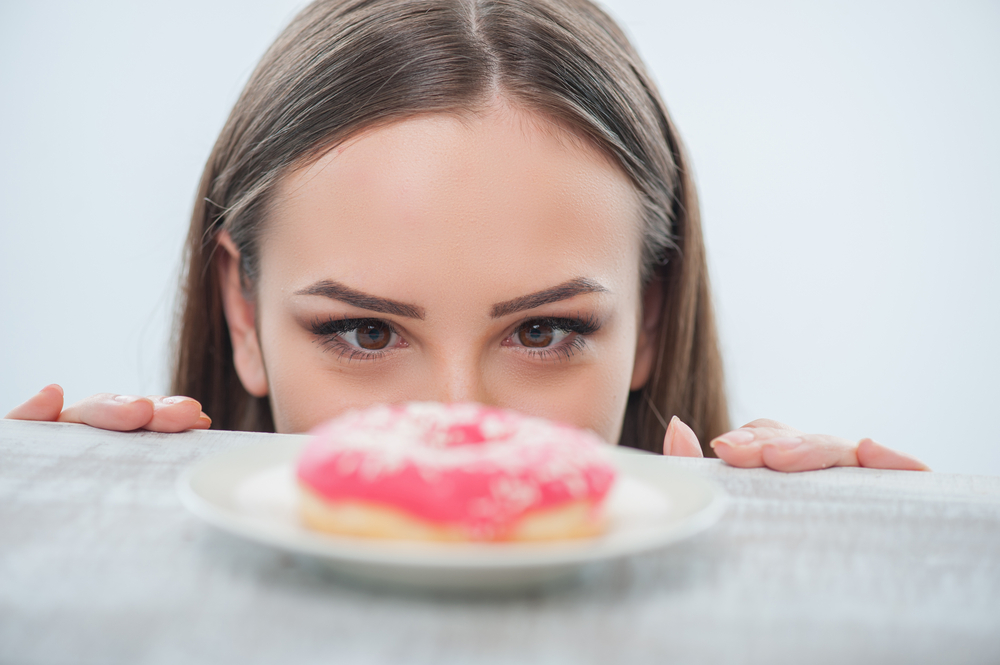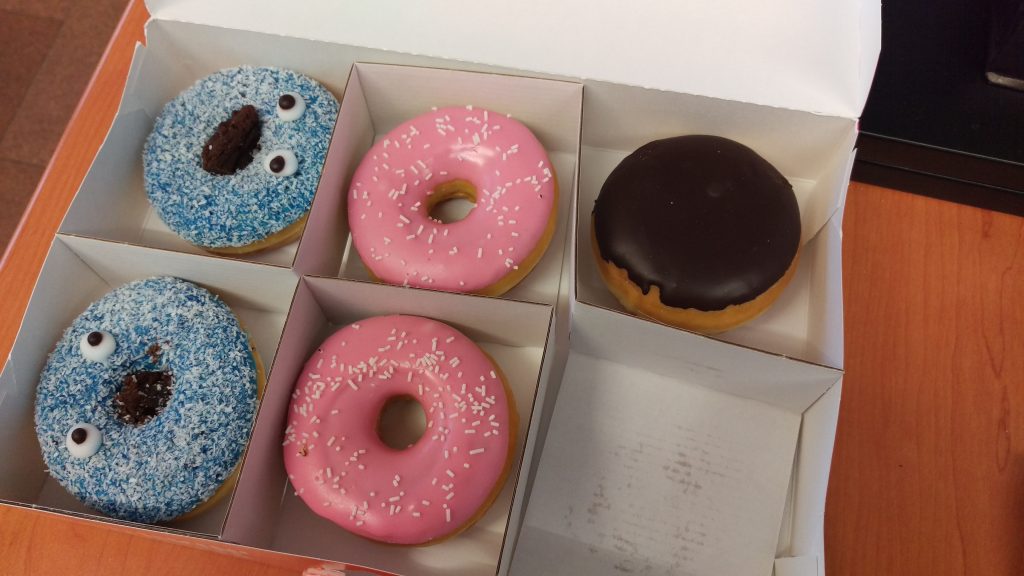
There’s always that one guy who eats junk food all day while staying lean year-round. You, on the other hand, eat “clean” but can’t seem to keep the weight off. Why is that?
Meet Mark Haub, Professor of Human Nutrition at Kansas State University.
In an effort to prove that energy balance is the determining factor of weight management, he ate a diet consisting mainly of snack foods such as Twinkies, Oreos, Donuts and Doritos for 2 months straight. Consuming between 1500-1800 calories a day, he created a substantial energy deficit of 700+ calories per day.
The result: Haub lost 27 pounds (12 kilos). But the real eye-opener is he improved his health status significantly.
His “bad” cholesterol LDL dropped 20 percent while his “good” cholesterol HDL increased by 20 percent. In addition to that, his triglycerides (blood fats) were reduced by a staggering 39 percent. He ate “unhealthy” foods and got healthier!
“How is that possible?”
Food quality is not as important as you think.
As I mentioned previously, you could be eating the “healthiest” foods, the “cleanest” diet and still suffer from nutritional deficiencies, weight problems and nagging health issues.
“I was eating healthier, but I wasn’t healthy. I was eating too much.” – Prof. Mark Haub
And therein lies the problem. If you eat too much, regardless of food quality, you’ll never look the way you want to look and you’ll never perform the way you want to perform.
“What are you saying? Should I start eating candy bars for breakfast?”
Let go of food phobia

Nutrition is a numbers game first and foremost. I hate to crush your romantic idea of the perfect diet.
You’re lying on a fuzzy picnic blanket. The sun is shining on your neatly cut celery sticks and the home-made vegan hummus dip. Oh look, it’s Brad Pitt reaching out to hand you a gluten-free muffin…
Snap out of it! There is no such thing as a perfect diet.
As much as I endorse eating earth-grown, whole foods, there’s nothing wrong with indulging every once in a while. Actually, eating supposed bad foods on occasion may provide considerable psychological benefits, making your nutrition protocol more sustainable (and your life more enjoyable).
The more you restrain yourself, the more you’ll be tempted to cheat on your diet.
Labeling foods as unhealthy or off-limits will inevitably lead to uncontrollable binge episodes further down the line. You have the “disinhibition effect” to thank for that (Westenhoefer et al 1999). To make matters worse, your weight-loss and long-term health will suffer if you stress over your foods excessively (Epel, 2009).
Don’t try to fight it. This is a war you cannot win.
This is not an invitation to crash your local buffet restaurant in hopes of avoiding the aforementioned dieting pitfalls. Nevertheless, I want you to loosen up a bit. Let go of the “bad food vs. good food” idea. Embrace the fact that you can actually eat the foods you like and still be in fantastic shape.
If you enjoy eating exclusively clean foods, more power to you. I’m not going to tell you to start munching on processed crap. But don’t think you can out-smart physics by following a certain diet or eating a certain way.
Your energy balance (calories in vs. calories out) will dictate how you look AND feel.
Track your nutrition and break your fat-loss plateaus
Calories decide whether the number on your scale goes up or down. There are no fat-burning or weight-gaining foods (still not convinced? Read this).
How much food can you eat without gaining or losing weight? Use the formula I provide to calculate your personal maintenance calories. Once you have established your base energy intake, subtract 15-25% of calories to create a deficit and lose weight. Going lower than that will greatly limit food quantity and compromise hormonal balance, making it unnecessarily difficult to stay on track.
Calculating your maintenance (base) calories:
Bodyweight in lbs x 14-16= maintenance calories
If you’re a female and/or rather sedentary, you’ll want to stick to the lower end. You can also use this calculator. Apply and experiment. Find your personal sweet spot. Don’t expect me to do this for you (unless you’re working with me).
Life is good. Enjoy it.
Within your personal calorie range you can (and should) introduce some variety. Eat predominantly whole foods, but don’t be afraid to have some of the “good stuff” too.
Go out for dinner every once in a while, have some of your mother’s famed cheesecake or enjoy a bowl of Ben & Jerry’s while watching your favorite Netflix show.
You can do all of that while losing weight and sporting perfect health. I’ll leave you with author and nutrition expert Brad Pilon’s “golden guideline of eating” (2013):
“Eat less, while enjoying the foods you eat. Eat lots of fruits and vegetables, and lots of herbs and spices. And maybe most importantly, spend less time stressing over the types of food you are eating.”
That last sentence is key. There’s a life beyond dieting. Don’t let food keep you from experiencing it.
Thank you for reading
Victor
Resources
Epel, E.S. (2009). Psychological and metabolic stress: A recipe for accelerated cellular aging? Hormones. 8(1):7-22
Herman, C.P./ Mack, D. (1975). Restrained and unrestrained eating. Journal of personality. 43:647-660.
Pilon, B. (2013). Eat Stop Eat. Strengthworks International
Strasser, B./ Spreitzer, A./ Haber, P. (2007). Fat loss depends on energy deficit only, independently of the method for weight loss. Ann Nutr Metab. 51(5):428-32.
Westenhoefer, J./ Stunkard, A.J./ Pudel, V. (1999). Validation of the flexible and rigid control dimesions of dietary restraing. International journal of Eating Disorders. 26: 53-64.
Kuhler Artikel Baindl
Thanks!